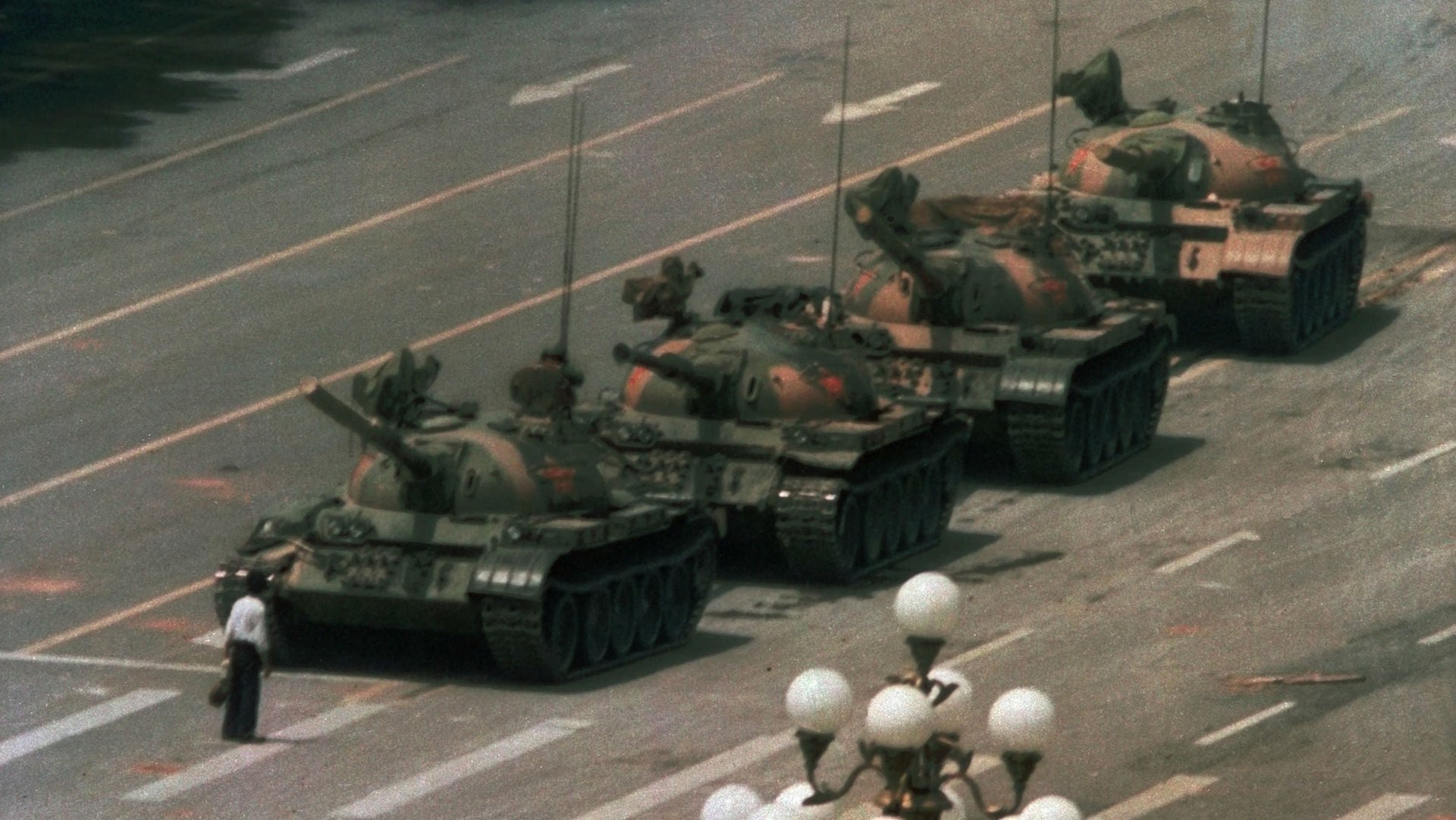The UK knew China was planning a massacre at Tiananmen Square two weeks before it happened
“Two hundred dead could bring 20 years of peace to China,” former Chinese leader Deng Xiaoping was quoted as saying in recently declassified documents. His words were spoken weeks ahead of the bloody military crackdown on student protesters in Beijing’s Tiananmen Square on June 4, 1989.


“Two hundred dead could bring 20 years of peace to China,” former Chinese leader Deng Xiaoping was quoted as saying in recently declassified documents. His words were spoken weeks ahead of the bloody military crackdown on student protesters in Beijing’s Tiananmen Square on June 4, 1989.
The UK’s National Archives released on Dec. 30 a huge number of previously secret government files from 1989 and 1990. Over two dozen documents (pdf) dated between May 20 and July 21 in 1989 revealed the Margaret Thatcher administration’s understanding of the political climate in China in the lead-up to the crackdown. A major reveal: The UK embassy in Beijing knew two weeks before June 4 that the People’s Liberation Army was preparing to kill hundreds, if not thousands, of student protesters who had been gathering at Beijing’s main square for weeks.
On May 20, 1989, a month after students started occupying Tiananmen Square calling for democratic reform in the Communist Party, Deng declared martial law and deployed 300,000 troops to Beijing. On the same day, Sir Alan Ewen Donald, Britain’s ambassador to China, sent Downing Street a telegram about his lunch with American sinologist Stuart Schram.
“Professor Stuart Schram confided to me that one of his Chinese contacts had told him that in recent days Deng Xiaoping commented that ‘two hundred dead could bring 20 years of peace to China’,” Donald wrote. “The implication clearly was that the sacrifice of a number of demonstrators lives now would stabilize the present situation and buy the time needed to complete the reform of China.”
Donald went on to say that he learned from the Pentagon on the same night that the Chinese authorities had decided “there is no way to avoid bloodshed,” so they recalled state hospital staffers to their workplaces and instructed the troops to “do what is necessary to put down the situation.”
He later confirmed with the US air force that the information is “very reliable.”
The Tiananmen Square massacre, also known as the June 4th incident, is one of the darkest moments in modern Chinese history. No uprisings on a similar scale in China have happened since then. The Communist Party strictly prevents people from mentioning the incident and suppresses any commemorations to the victims. Today, many young Chinese citizens don’t even know—or simply don’t care—about the incident.
The declassified papers also revealed Singapore’s founding father Lee Kuan Yew’s stance on the crackdown. During a meeting with ambassador Donald in July 1989, Lee said he was puzzled why the student protesters decided to escalate their general demands for political reform to directly attacking Deng, which he called “an act of folly.”
Lee also predicted that a military crackdown was Deng’s only option to put an end to the students’ resistance, something he “felt in his bones as a Chinese.”
What the cables also reflect are the conversations that were whirling around in Beijing in the weeks before the army received orders to open fire on the protesters. Many close to the Chinese government, including high-ranking party members who had sons and daughters among the protesters, knew that a more hardline faction was winning.
And on May 19, when ousted party chief Zhao Ziyang went to see the students with future prime minister Wen Jiabao at his side, he broke into tears as he told the students: “We have come too late.” Many took that as a further sign that a violent crackdown was imminent, but it was still not enough to convince the students and their supporters to leave. Beijing residents were conducting daily rounds to talk to the soldiers already stationed in the city, telling them that the protesters were not “counter-revolutionaries.” And at the end of it all, it was hard for a lot of Chinese people to believe that “the People’s Army” could open fire on the people.
This post has been updated with more details of what was happening in Beijing in May 1989.